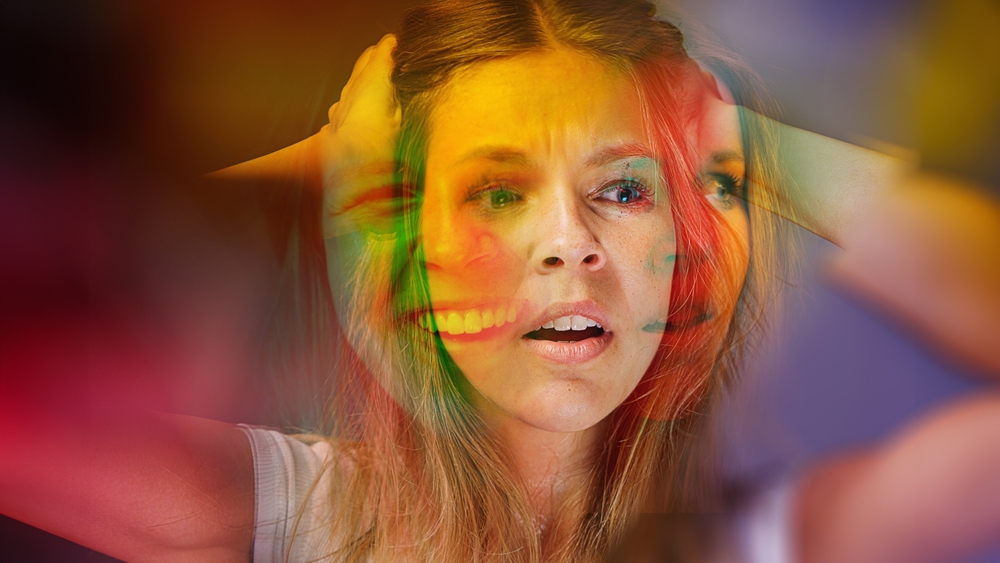Last Updated:
August 5th, 2025
Behavioural Addictions | Signs, Causes and Types
Many of us joke about friends who can’t stop shopping or those glued to their computers all day. Yet, what seems like harmless fun might mask a serious behavioural addiction. Addictions to activities like gambling, shopping or gaming are not just bad habits, they are the result of deep-seated psychological dependencies. Behavioural addictions can have consequences just as tragic as drug abuse but understanding the types, symptoms and effects is the first step in staying safe.
What are behavioural addictions?
The simplest behavioural addiction definition is when you can’t stop yourself from repeatedly engaging in actions that are hurting you. While some might struggle with just one type of behavioural addiction, others might find themselves caught in several at once or compounding their difficulties with simultaneous drug or alcohol abuse.
Behavioural addiction taps into the same reward pathways in the brain as substance addiction. When you experience something enjoyable, such as winning a bet or purchasing something new, your brain is flooded with endorphins. These chemicals provide a temporary pleasure that naturally diminishes, prompting you to repeat the behaviour to recapture that feeling.
For most people, these activities remain casual pastimes and they can easily wait for the next casino night or shopping trip. But for others, it can quickly become an escalating cycle as the brain’s response diminishes over time. This means more frequent or intense gambling, shopping or gaming are required to experience the same enjoyment.
This growing tolerance is the first step towards addiction, and eventually, a point is reached where the activity is performed compulsively, even though it is causing more harm than pleasure.
Struggling with an addiction? If you are ready to seek help, reach out to us today, and a member of our compassionate team will help you find the best option for starting your recovery journey.
What are the signs and symptoms of a behavioural addiction?
Behavioural addiction signs and symptoms can vary a lot depending on the person and the activity. However, spotting them early can help you get the right help for behavioural addiction before major issues arise. Some of the key signs include:
- You are caught in a loop, doing the same thing over and over even though it’s not good for you.
- Basic things like work or hanging out with friends are being neglected because of your habits.
- You have tried to stop multiple times but have failed every time.
- You keep secrets about how much time you spend on these activities.
- Your schedule is built around satisfying your addiction.
- What used to be fun now feels like a chore but stopping feels even worse.
- After the rush wears off, you’re left feeling guilty and stressed.
If you spot these signs, you should seek professional help for behavioural addiction to avoid the most serious consequences.
Common examples of behavioural addiction examples
There are various behavioural addictions which affect people in the UK and worldwide. Some of the most serious include:
Gambling addiction
Gambling addiction is a critical issue across the UK, marked by an uncontrollable desire to keep gambling. It can lead to financial, significant issues in your personal life and serious mental health problems. Click the button to learn more.
Gaming addiction
Gaming addiction has only recently been acknowledged as a serious disorder but it impacts millions globally, especially young adults. The addiction can lead to severe social withdrawal, mental health issues and even financial problems as those affected retreat further into virtual worlds.
Porn addiction
The line between casual viewing and addiction blurs when pornography becomes a habitual form of escape from real-life challenges or distress. For many, it becomes a way to handle stress, loneliness or emotional pain, escalating to a point where it harms your daily life. Click the button to learn more.
Internet addiction
With the digital world at our fingertips, some people cannot log off, particularly from gaming and social media platforms. Internet addiction can take up huge amounts of your time and also impact your mental and physical health and real-world relationships.
Sex addiction
Sex addiction manifests as an overwhelming urge to engage in sexual activities to the extent that it causes harm. Those affected may frequently put themselves in dangerous situations or damage their relationships due to their uncontrollable urges and behaviours. Click to learn more.
Love addiction
People with love addiction often find themselves in a continuous search for romantic validation, mistaking intense emotional neediness for love. This addiction compels them to fixate on a person or seek out relationships compulsively despite the emotional harm it causes.
Shopping addiction
For those with a shopping addiction, it is not about acquiring necessities but chasing a thrill. It can provide temporary pleasure, but the reality of financial and personal consequences quickly overshadows this.
Food addiction
For those with a food addiction, it is not about hunger but seeking comfort or escape. Eating offers short-term relief or pleasure, but feelings of guilt, loss of control, and health issues soon follow. Click on the button below if you would like to learn more.
Social media addiction
For those with a social media addiction, it’s not about connection but chasing validation. Likes and notifications offer brief satisfaction, but they often lead to anxiety, low self-esteem, and reduced real-life engagement.
What causes a behavioural addiction?
There are various underlying reasons why people develop behavioural addictions. Some people use these activities to distract themselves from something stressful or unpleasant, such as loneliness, dissatisfaction, or even boredom.
Others may have serious mental health conditions like depression, anxiety or symptoms of trauma, which they use shopping, gambling or sex to cope with. For some people, behavioural addiction can even come as a result of their family as they are genetically predisposed to addiction or have grown up around addictive behaviours.
Whatever the case, things can quickly spiral out of control and when they do, the underlying causes are often made far worse by addiction.
What are the dangers of a behavioural addiction?
Behavioural addictions can wreak havoc not just in your life but also impact your loved ones and even your health. Some of the biggest dangers include:
Health problems
Behavioural addictions can lead to significant physical repercussions. For example, those grappling with sex addiction might face increased risks of sexually transmitted infections (STIs), while gaming and internet addiction can lead to insomnia and related health issues.
The psychological impact can be even worse as the stress of addiction can enflame or trigger disorders like depression and anxiety and can even lead to self-harming or suicidal thoughts. For example, there are almost five hundred suicides a year in England related to gambling addiction.
Harm to relationships
Behavioural addictions can erode the foundations of even your closest relationships. You might start prioritising addictive activities over time with family and friends and even start lying to them about your actions or the financial cost of your habits.
However, the repercussions can extend far beyond mere neglect. The stress and financial strain of addictive behaviours can lead to fights and a complete loss of trust and intimacy and leave you isolated and alone as loved ones are pushed away.
How to help someone with a behavioural addiction
Effective treatment for behavioural addiction varies based on the activity involved. While detox is usually thought of as part of substance abuse treatment, you may also need professional help withdrawing from activities like gaming or shopping, which can cause a lot of distress. This helps deal with any symptoms of withdrawal and also stops you from relapsing when things get tough.
Successful recovery then requires understanding your unique reasons behind it, which is what behavioural addiction rehab aims to do. Both private and NHS facilities offer programmes where you can explore your personal triggers and underlying issues in a supportive environment. Inpatient settings are generally the best choice because they provide the intensive support and distraction-free environment needed for focus and commitment.
Where to get help for behavioural addiction
At Addiction Helper, we are committed to helping you find the right path to recovery. With a deep understanding of your unique challenges, we offer personalised advice to help you choose the best behavioural addiction treatment options for you. Get in touch with us to start your journey to recovery with a rehab centre that fits your needs.
Our compassionate team are ready and available to take your call, and guide you towards lasting the lasting addiction recovery you deserve.
Frequently Asked Questions
(Click here to see works cited)
- UK Addiction Treatment Centres. “Behavioural addiction.” UK Addiction Treatment Centres, https://www.ukat.co.uk/addiction/behavioural/. Accessed 6 February 2025.
- UK Rehab. “Behavioural Addictions.” UK Rehab, https://www.uk-rehab.com/behavioural-addiction/. Accessed 6 February 2025.
- Alavi, Seyyed Salman et al. “Behavioral Addiction versus Substance Addiction: Correspondence of Psychiatric and Psychological Views.” International journal of preventive medicine vol. 3,4 (2012): 290-4.
- Grant, Jon E et al. “Introduction to behavioral addictions.” The American journal of drug and alcohol abuse vol. 36,5 (2010): 233-41. doi:10.3109/00952990.2010.491884



